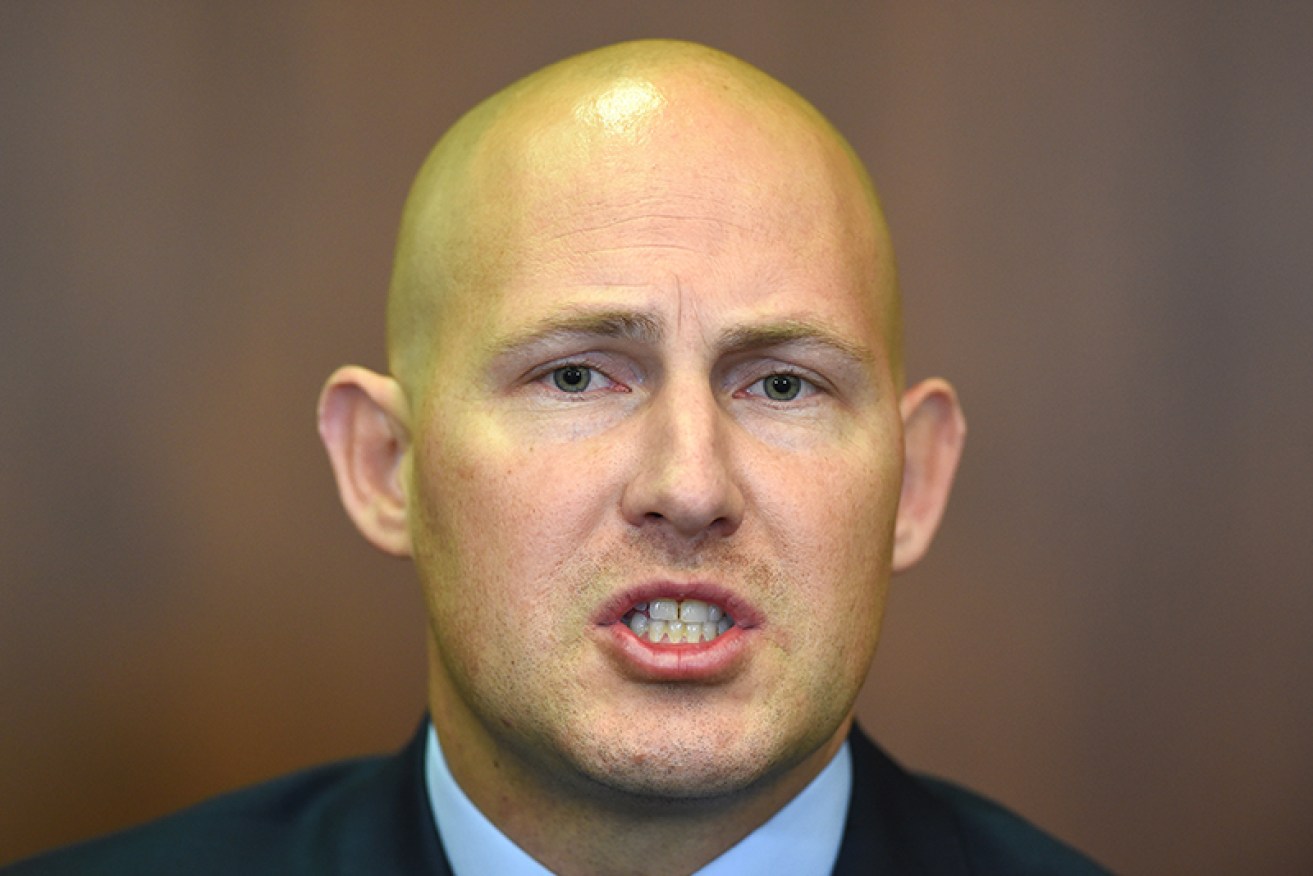Queenslanders just had their super raided, but it’s okay


Pitt
In his first budget delivered on Tuesday, Queensland’s new treasurer Curtis Pitt made an announcement that on the face of it sounds appalling.
The public sector, he said, would stop making superannuation contributions to employees who are members of QSuper’s defined benefit scheme.
This “pause” will last five years and affect around 50,000 Queenslanders. It will supposedly save the government coffers $2 billion over that period.
• The latest ruse to make you work longer
• Peter Costello is wrong, you can trust super
• Say goodbye to double-digit super returns
• Government announces major super overhaul

Queensland Treasurer Curtis Pitt has found a roundabout way of getting his hands on Queenslanders’ super. Photo: AAP
Mr Pitt insisted this was no big deal.
“No money is taken out,” he said. “Nothing is being raided. To suggest anything else is playing politics and scaremongering.”
Of course he would say that. It’s his job to put a positive spin on everything.
Can we believe him? If his numbers are correct, we probably can. But that is a (fairly) big if.
But there are other issues. First, it could further erode public confidence in the super system.
Second, it could set a precedent for other governments who are strapped for cash.
Let’s not forget that the federal government is sitting on a sovereign wealth fund, the Future Fund, that’s worth a stonking $117 billion. Its sole purpose is to fund the government’s superannuation obligations to public sector employees. But that could be changed through legislation.
What the Queensland government is actually doing
The vast majority of Australians are members of ‘accumulation’ superannuation funds. The way they work is very simple: you contribute a certain amount of money throughout your working life, that money is invested and hopefully earns you plenty of interest. When you retire, that money is all yours until it runs out, and then you’re on the age pension.
But a minority of Australians – mainly public sector and university employees – are in defined benefit super funds. As the name suggests, they essentially guarantee their members a pay-out based on their salary at retirement. The calculations are convoluted and complicated (find out more here), but the key point is the pay-out is not based on investment returns – and it is usually extremely generous.
To put it simply: as with a bank, the money you put in has a very dubious connection to the money you take out. That’s means the government can fiddle around with it, even “raid” it, potentially without anyone noticing.
Mr Pitt says QSuper’s defined benefit scheme is more than “fully funded” – in fact, he claims it is running a surplus of between $2 billion and $10 billion. That means the government can afford to stop paying into it for a few years.
“Again, importantly,” he said, “there will be no change in entitlements for defined benefit members and the scheme will remain at least 100 per cent fully funded.”
The trouble with this is it is based on actuaries’ projections, not hard figures. If these projections are correct, then Queenslanders have nothing to worry about. If not, then they do.

John Howard and Peter Costello set up the Future Fund to fund the Commonwealth’s generous defined benefit superannuation obligations. Photo: AAP
But then again, the public sector already get heaps of super
Before getting too outraged, it is worth remembering that public sector employees are extremely well looked after in retirement. If you are lucky enough to be on a defined benefit government scheme, then you have hit the super jackpot.
The Commonwealth schemes are so generous, former treasurer Peter Costello felt the need to create a sovereign wealth fund with the specific purpose of funding its superannuation obligations.
Unfortunately, most defined benefit schemes, including the QSuper and Commonwealth schemes, are closed to new members now. They are just too complicated and expensive.
But even public sector employees in accumulation funds are very well looked after. The minimum compulsory contribution for Queensland public sector workers is 11.75 per cent of your annual income – more than 2 percentage points higher than the standard 9.5 per cent.
But it gets better. If you are willing to sacrifice 5 per cent of your salary to super, then the government will contribute 12.75 per cent on top of that.
Commonwealth public sector employees also get a great deal: a flat 15.4 per cent super contribution.
Thanks to powerful enterprise bargaining agreements, university employees do even better: they receive contributions of 17 per cent of their annual income.
There is, in other words, a lot of money floating around in the super system. And as the Queensland budget shows, the temptation to swipe a billion here and a billion there can be hard to resist.







